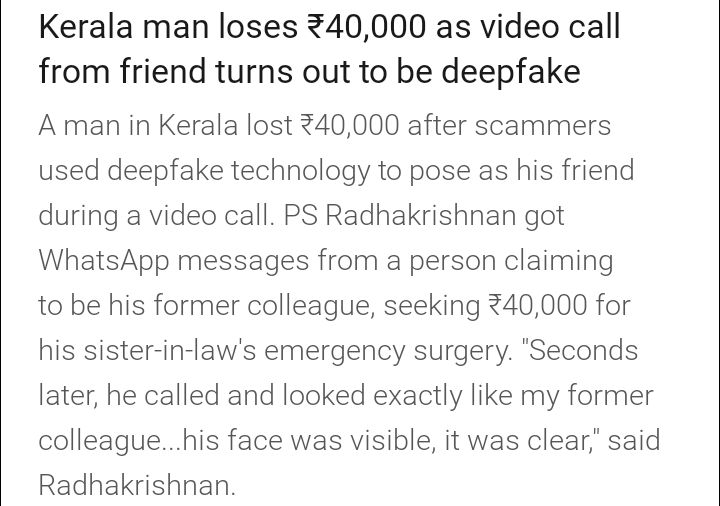this post was submitted on 18 Jul 2023
555 points (97.9% liked)
Technology
59377 readers
4087 users here now
This is a most excellent place for technology news and articles.
Our Rules
- Follow the lemmy.world rules.
- Only tech related content.
- Be excellent to each another!
- Mod approved content bots can post up to 10 articles per day.
- Threads asking for personal tech support may be deleted.
- Politics threads may be removed.
- No memes allowed as posts, OK to post as comments.
- Only approved bots from the list below, to ask if your bot can be added please contact us.
- Check for duplicates before posting, duplicates may be removed
Approved Bots
founded 1 year ago
MODERATORS
you are viewing a single comment's thread
view the rest of the comments
view the rest of the comments

Perhaps its because I pre-date most internet technology, but I am extremely distrustful in all digital spaces. Everyone should've started being extremely distrustful years ago, if they weren't already. Not today.
You don't wait for a big problem to smack you in the face. That's how you lose 40k like our elderly friend. You just get to be in the first wave of potential victims that way.
I grew up before the internet myself. I can't say I'm on high alert for fake video calls lol I will be moving forward, however, now that it's a credible threat.
I'm not saying I don't make video calls, mind you. I just don't trust them 100%. Haven't on that specific one for awhile now.
Thus, if someone asked me for 40k via one, I would say no, and to contact me in person.
40,000 rupees is like $400. Would you ask your friend to meet you in person for that amount, especially if they live quite far away?
I did not consider that kind of conversion rate. No, I probably would not.
India had a purchase power parity compared to the US$ of > 24 in 2022, i.e., while you can exchange only ~400–500 US $ for ₹ 40,000, this amount of money will buy goods within India that would be worth $ 9,600–12,000 within the US. Exchange rates can be pretty misleading.
https://data.oecd.org/conversion/purchasing-power-parities-ppp.htm
The problem is with senior citizens, even if we tell them to not believe things on internet and tell them to not trust any calls, they will eventually do the opposite once the scammer pretends to be someone close to them. They cant even tell if a normal video is fake or real then how can they tell of someone on a video call is real pr fake, chances are once they see someone dear to them in danger and asking money they will forget everything you've told them about the internet and get scammed ....